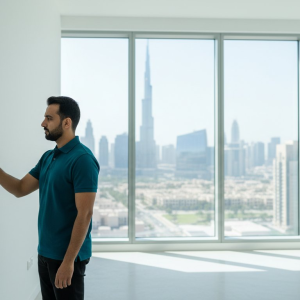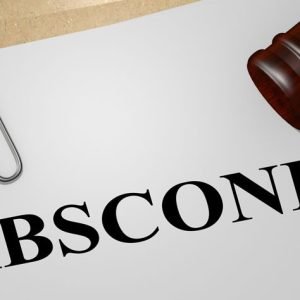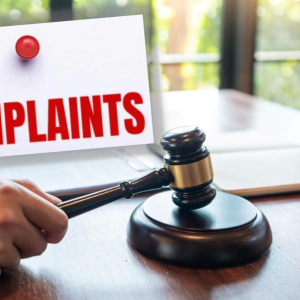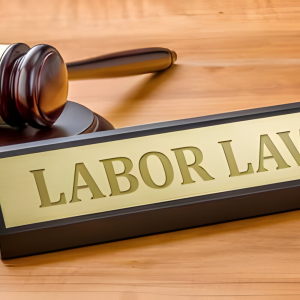The Dubai engineering consultancy law is set to transform how consultancy firms operate in the emirate. Under Law No. (14) of 2025, companies and individuals offering engineering consultancy services must follow new rules on licensing, registration, classification, and compliance. The law introduces strict criteria, penalties, and an electronic system to monitor firms.
This move aims to raise professional standards, prevent unqualified practices, and build Dubai’s reputation as a global hub for high-quality engineering consultancy.
Purpose of the New Law
The law was introduced to improve the quality, accountability, and transparency of engineering practices in Dubai. Authorities have found that some consultancy firms were inflating design costs, especially in residential projects, and operating without proper qualifications.

The main goals of the law are to:
- Ensure that only qualified and licensed professionals provide consultancy services
- Protect clients from cost inflation and poor-quality designs
- Improve safety and technical standards
- Attract top international consultancies under clear regulations
- Support Dubai’s infrastructure development plans
By enforcing a stronger legal framework, the government aims to align the industry with global best practices.

Main Provisions of the Law
1. Mandatory Authorization
No individual or company is allowed to provide engineering consultancy services in Dubai without a proper license and registration. This includes all disciplines such as civil, mechanical, electrical, electronic, chemical, and architectural engineering.
Firms are also prohibited from marketing themselves as consultancies unless they are officially licensed.
2. Unified Electronic Registration System
Dubai Municipality will create an integrated electronic platform linked with the “Invest in Dubai” portal. Through this system, companies can register, renew licenses, classify their services, and manage professional certifications.
The platform will also track consultancy offices, their approved scopes, and technical staff to ensure complete transparency and regulatory monitoring.
3. Classification and Eligibility
The law defines who can qualify as an engineering consultancy office in Dubai. Eligible categories include:
- Local engineering consultancy firms established in Dubai
- Branches of UAE-based firms with at least three years of consultancy experience
- Branches of international firms with ten years of continuous experience
- Joint ventures between local and foreign companies, where the foreign partner has at least ten years of experience
- Individual advisory offices owned by engineers with ten years of experience
- Engineering audit firms that review or approve consultancy work
These categories ensure that only experienced and credible firms are allowed to operate in the emirate.
4. Limiting Work Scope and Staff Registration
Consultancy firms must strictly operate within the scope defined in their licenses. They must also employ registered engineers with valid competency certificates. Firms are not allowed to contract unlicensed entities or offer services beyond their approved areas.
These measures are meant to maintain professional integrity and prevent unqualified or unauthorized practices.
5. Compliance Deadlines
Companies and consultants have one year from the law’s effective date to regularize their status. The law becomes active six months after its publication in the Official Gazette.
Licenses that expire during this transition period can be renewed, provided the firm commits in writing to comply with all new conditions within the given timeframe.
6. Penalties and Enforcement
Violating the law can lead to serious consequences, including:
- Fines of up to AED 100,000, with higher fines for repeat offenses
- Suspension of business operations for up to one year
- Downgrading or removal from the official consultancy registry
- Cancellation of trade or commercial licenses
- Removal of technical staff from professional registries
- Reporting of violations to the UAE Society of Engineers
Companies that receive penalties can file written appeals within 30 days of being notified. The appeal committee will issue a decision within another 30 days, and the ruling will be final.
Impact on Stakeholders
For Local and Foreign Consultancies
The new law increases operational responsibility. Firms must invest in compliance systems, training, and documentation. While this raises short-term costs, it improves long-term credibility.
Some of the expected impacts include:
- Higher administrative costs to meet regulatory standards
- The need to specialize within approved scopes
- Limited entry for inexperienced firms
- Increased confidence from clients due to government oversight
- Risk of suspension or fines for non-compliance
For Engineers and Technical Staff
Individual professionals must be registered and certified to practice. Engineers will need to obtain competency certificates and renew them periodically. Those who fail to register or meet qualification standards could lose their eligibility to work under the new framework.
For Clients and Developers
The new law brings more trust and transparency for clients. They can now verify if a consultancy is officially registered, review its scope, and ensure the hired firm meets professional standards. This will likely lead to safer and more cost-effective construction projects across Dubai.

Preparing for Compliance
Engineering firms should take early action to adapt to the new system. Below is a checklist of essential steps:
- Audit your firm’s current status: Review all licenses, staff qualifications, and existing registrations.
- Plan for registration: Prepare the required documentation for submission once the new electronic system opens.
- Certify technical staff: Ensure all engineers hold valid registration and competency certificates.
- Update contracts: Work only with subcontractors and partners who are licensed under the new law.
- Set up compliance monitoring: Assign a team to track deadlines, penalties, and renewal dates.
- Engage with authorities: Maintain communication with Dubai Municipality for updates and guidance.
Early preparation will help avoid penalties and protect business continuity once the law is enforced.
Challenges Ahead
While the new law improves standards, it also presents challenges for the industry.
Small consultancies may struggle to meet financial and administrative requirements, while larger firms will need to dedicate resources for compliance. There may also be issues such as:
- Confusion about classification levels and approval processes
- Delays during the initial registration rush
- Potential inconsistencies in enforcement or interpretation
- Limited time to transition for firms with ongoing projects
Despite these hurdles, the law marks a necessary step toward more transparent and accountable engineering practices in Dubai.
Transition from Old to New Regulations
The previous legal framework, established under Local Order No. (89) of 1994, has now been replaced. However, existing rules and guidelines remain valid if they do not conflict with the new law until new executive regulations are issued.
The new system is far more detailed, introducing classifications, digital registration, and formal staff certification — elements that were not clearly defined in earlier laws.
Implementation Timeline
- Law announced in 2025
- Becomes effective six months after official publication
- One-year transition period for firms to comply
- Full enforcement after the transition ends
This gives firms and individuals enough time to adjust, but the deadline is firm and non-negotiable.
Frequently Asked Questions
Does the law apply to firms outside Dubai?
It applies to all consultancies operating within Dubai, including foreign branches registered in the emirate.
Can firms offer services beyond their approved scope?
No. They must work strictly within the services mentioned in their licenses.
Can penalties be appealed?
Yes, appeals can be submitted within 30 days of receiving a penalty notice.
Are there exceptions for existing firms?
Existing firms have one year to comply, but they must submit a written commitment to meet the new requirements.
Conclusion
The Dubai engineering consultancy law is a major milestone in the emirate’s journey toward higher professional and technical standards. It establishes a modern, transparent system for regulating engineering firms, protecting clients, and promoting accountability.
While compliance may initially challenge smaller firms, it will ultimately benefit the entire sector by improving quality, safety, and trust. Companies that act early to align with the new law will gain a competitive edge and contribute to Dubai’s vision of a world-class engineering and infrastructure environment.
Do follow UAE Stories on Instagram
Read Next – Seasonal Changes from Hot Summer to Mild Winter in Dubai












